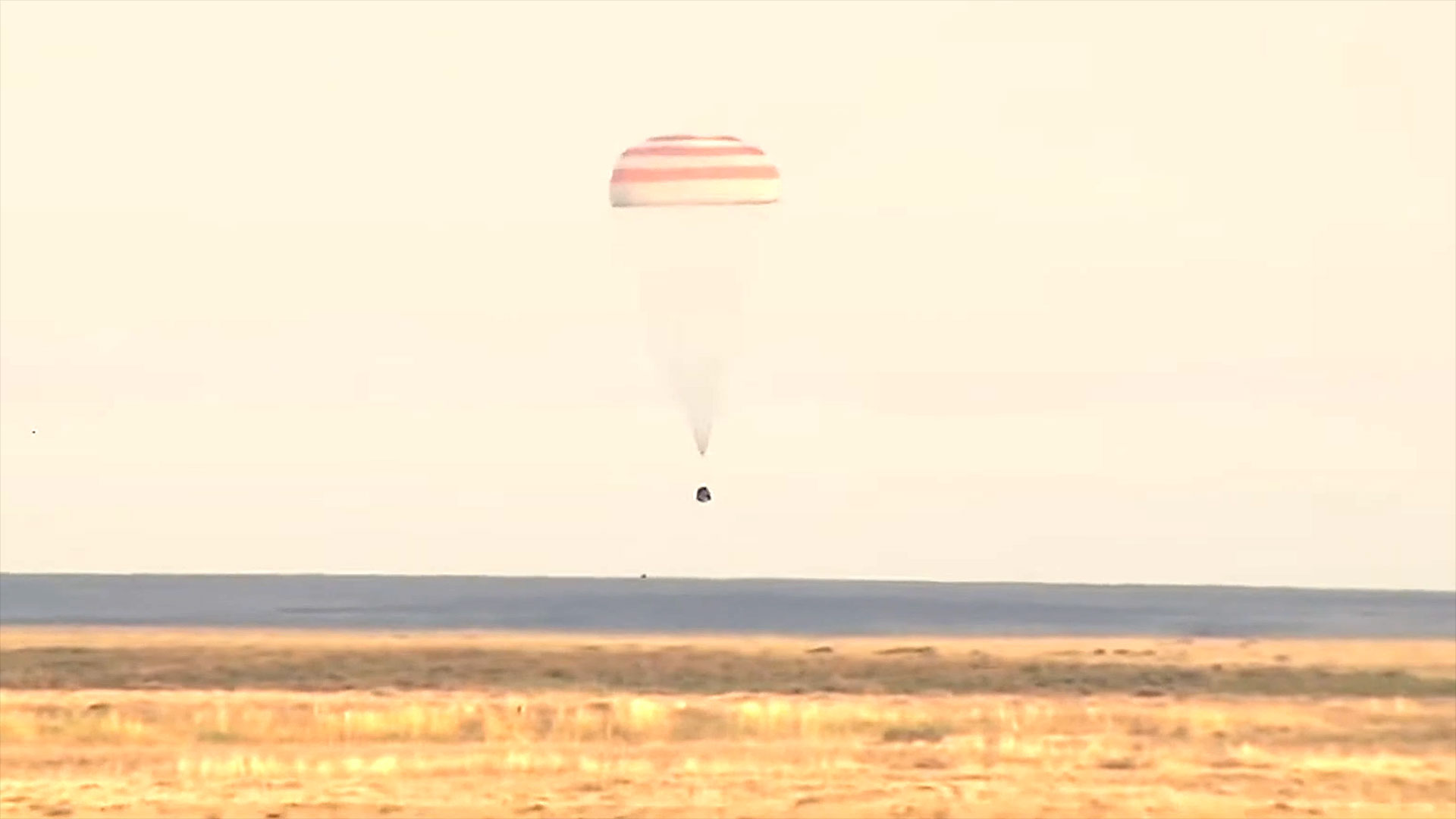NASA Budget Proposal Plans End of NASA Funding of ISS, Seeks Commercial Transition
WASHINGTON — NASA’s fiscal year 2019 budget proposal will include plans to end funding for the International Space Station in 2025, but leaves open the possibility of handing part or all of the station over to private operators.
The budget proposal, due to be released Feb. 12, will include a request for $150 million to support the development of commercial capabilities in low-Earth orbit to succeed the ISS, for which NASA could be a customer, according to an internal agency document obtained by SpaceNews.
As part of a congressionally-mandated ISS transition plan yet to be released, NASA examined several options for the station's future, according to that document. Those options ranged from continuing the ISS "as is" beyond 2024 to deorbiting the entire station, as well as options to operate the station as a public-private partnership or transfer parts of the station to a private platform. [From Ike to Trump: Presidential Visions for Space Exploration]
The approach the administration has chosen is one that would end NASA funding of the ISS in 2025, while offering support for the development of commercial successors. “In support of enabling a timely development and transition of commercial capabilities in LEO where NASA could be one of many customers in the mid-2020s, the Administration is proposing to end direct Federal support for the ISS in 2025 under the current NASA-directed operating model," the document states.
The end of federal funding for the ISS would not necessarily mean the end of the station, or at least some parts of it, according to the document. "[I]t is possible that industry could continue to operate certain elements or capabilities of the ISS as part of a future commercial platform," it states.
The goal of that effort would be to have commercial facilities in operation by the time NASA funding for the ISS ends in 2025, with NASA potentially being a customer of those facilities to support its research needs, such as for exploration beyond Earth orbit. "It is the intent of NASA and the Administration to maintain seamless access to a human platform in LEO that meets NASA’s and the Nation's goals," the document states.
Less clear is how such a plan would be coordinated with the station’s international partners. Russia in particular has expressed an interest in developing its own space station after the ISS, potentially using some of the modules the country's space agency, Roscosmos, plans to add to its segment of the station in the next few years. The station’s other key partners — Canada, Europe and Japan — have not strongly expressed either a desire to continue using the ISS beyond 2024 or supporting development of other facilities in LEO.
Get the Space.com Newsletter
Breaking space news, the latest updates on rocket launches, skywatching events and more!
The NASA document notes that the station’s international partners are each at a different state in planning for operations of the ISS beyond 2024. "NASA will continue to consult with the partnership regarding ISS transition in order to ensure consensus and the effective implementation of the ISS Program," the agency document states.
Any effort to end NASA operations of the ISS in the mid-2020s is likely to face strong congressional headwinds, based on comments made since rumors of the plan leaked last month. Several key members of Congress, representing both houses and both parties, have expressed opposition to the idea of ending station operations in 2025.
Among them is Sen. Ted Cruz (R-Texas), chairman of the space subcommittee of the Senate Commerce Committee. "We have invested massively in the ISS. It has produced enormous benefits to the United States and the world, and we should use that asset as long as it is technologically feasible and cost-effective to do so,” Cruz said in a Feb. 7 speech at the Federal Aviation Administration’s Commercial Space Transportation Conference here. [Quiz! Do You Know the International Space Station?]
Asked after the speech if there was any chance the ISS would end in 2024, he said he didn’t believe so unless there was a technical reason for ending the station at that point. However, Cruz left open the door to keeping the ISS operating after 2024 as a public-private partnership of some kind.
“I think all of us are open to reasonable proposals that are cost-effective and that are utilizing the investments we’ve made in a way that maximizes their effectiveness,” he said.
This story was provided by SpaceNews, dedicated to covering all aspects of the space industry.
Join our Space Forums to keep talking space on the latest missions, night sky and more! And if you have a news tip, correction or comment, let us know at: community@space.com.

Jeff Foust is a Senior Staff Writer at SpaceNews, a space industry news magazine and website, where he writes about space policy, commercial spaceflight and other aerospace industry topics. Jeff has a Ph.D. in planetary sciences from the Massachusetts Institute of Technology and earned a bachelor's degree in geophysics and planetary science from the California Institute of Technology. You can see Jeff's latest projects by following him on Twitter.











